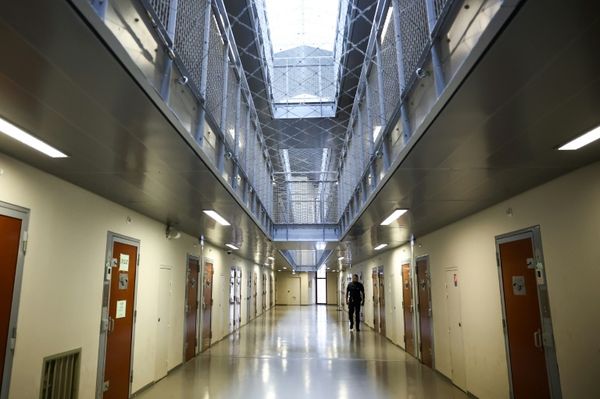Eli Lilly knows that making medicines is an energy-intensive business. It involves heavy use of electricity, water and raw materials.
The global pharmaceutical giant has a prescription for sustainable growth on many fronts. The company is poised for significant growth, thanks to its broad drug pipeline, strong revenue growth driven by GLP-1 drugs and investment in manufacturing.
Lilly's IBD technical and fundamental stock ratings combined with its good Morningstar Sustainalytics climate management score have put the company on IBD's 2025 list of the 50 Most Sustainable Companies.
As part of its goal of achieving carbon neutrality in its operations by 2030, Lilly has secured 58% of its purchased electricity from renewable sources. It has cut its Scope 1 and 2 greenhouse gas emissions by 37% from 2020 to 2024, according to its 2024 Sustainability Report.
"Lilly has consistently reduced its Scope 2 (emissions) since it started measuring them in 2016," said Marc Munier, chief executive of DitchCarbon, a London-based firm that helps large companies measure and reduce emissions. "They've also invested heavily in EV fleets to reduce their direct emissions."
Scope 1 emissions are direct greenhouse emissions from sources controlled or owned by an organization. That includes fuel combustion in boilers, furnaces and vehicles. Scope 2 emissions are indirect, connected to a company's purchase of electricity, steam, heat or cooling.
Lilly, a storied Indianapolis firm founded 150 years ago, makes medicines used by an estimated 58 million people. Its drugs help fight diabetes, obesity, Alzheimer's disease and some of the most debilitating immune system disorders and difficult-to-treat cancers.
See The Full 2025 Special Report On IBD's 50 Most Sustainable Companies
Eli Lilly's Global Sustainability Investments
Lilly's investments in renewable energy dot the globe. In 2023, it announced it would spend more than $10 million to build five new solar structures at its two Indianapolis campuses that house its U.S. corporate headquarters.
Lilly also runs Ireland's largest privately owned solar farm. It powers part of its facility in Kinsale. In 2023, this plant began making drugs to meet surging demand for Lilly's diabetes and obesity treatments.
Another Lilly facility in Limerick, Ireland, will operate with 35% lower energy intensity, use 40% less water and generate 15% less waste than traditional biopharmaceutical manufacturing processes. It will produce the biologic active ingredients for the company's Alzheimer's disease portfolio and other biologic medicines.
"At Lilly, our sustainability efforts are grounded in our nearly 150-year history and overall purpose to create medicines that make life better for people around the world," said Jim Greffet, the company's vice president of sustainability, in a written statement to IBD. "We set ambitious, quantifiable, long-term sustainability goals, creating a clear and well-defined path for our company's future. To drive accountability, we track the progress and performance of our sustainability strategy annually."
Prescription For Sustainable Growth
Lilly's torrid growth — it is the leader in the booming GLP-1 drug market that targets diabetes and weight loss — has not slowed its commitment to sustainability.
"While Lilly is witnessing unprecedented growth and expansion of our manufacturing sites, our sustainability goals remain unchanged," Greffet said. "With each new facility, we are finding ways to support our sustainability goals. This includes installing high-efficiency equipment, on-site solar energy (and) a renewable power purchase agreement for a wind farm in Texas."
In its latest analysis of Lilly's emissions, DitchCarbon's findings reinforce the company's intent to continue its sustainability gains.
"The company has demonstrated a proactive approach to sustainability, successfully reducing greenhouse gas emissions despite significant business growth," DitchCarbon recently reported. "These initiatives reflect Eli Lilly's commitment to addressing climate change and improving its environmental impact."
Sustainability poses a challenge for today's largest companies. Amid political pushback against ESG-oriented priorities, many CEOs are reversing their previously outspoken embrace of environmental, social and governance concerns.
Eli Lilly Keeps Pushing Ahead
But Lilly remains steadfast in its pursuit of sustainable goals, according to pharma industry observers.
"They do not seem to be caving to the current backlash against SRI/ESG/sustainability," said Sanjay Das, a Seattle-based certified financial planner. "Rather than kowtowing to the current (anti-ESG) climate, they seem to not be afraid. They keep pushing ahead."
Based on his reading of Lilly CEO David Ricks' comments on sustainability, Das said he admires how Lilly's leader frames the issue.
"He frequently says that just as drug development is a long game that can take 10 years, he ties that to sustainability," Das said. "When the company builds a plant and invests in sustainability, it's a long game too. Everything is in 10-year increments."
Sustainability In Big And Small Ways
Even in small ways, Eli Lilly seeks to use less paper. The company supports the Prescription Information Modernization Act of 2025. That legislation would replace reams of printed prescription inserts with streamlined digital communication sent to health care providers. Thanks to rare bipartisan agreement in Congress on this issue, this bill has a chance to become law.
Looking ahead, Lilly's momentum shows no signs of slowing as it pursues its sustainability goals.
"Lilly is doubling down on their investment in electrifying their fleet and expanding the amount of renewable energy they are using," Munier said. "They are also planning to work more closely with their suppliers to help reduce their emissions."







